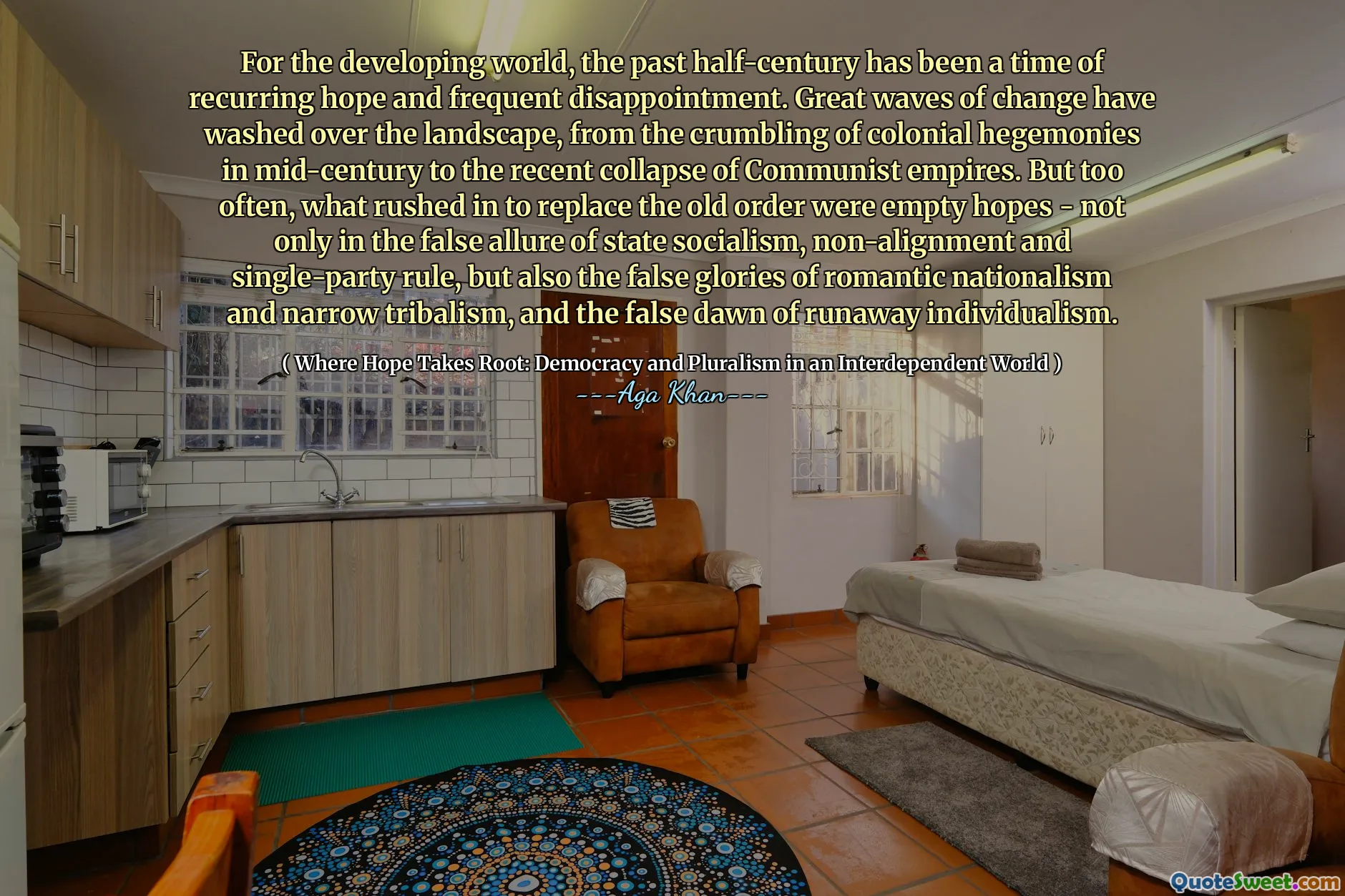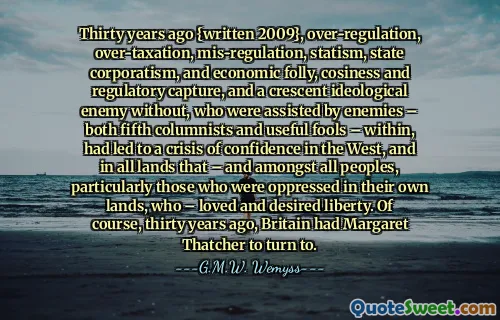
For the developing world, the past half-century has been a time of recurring hope and frequent disappointment. Great waves of change have washed over the landscape, from the crumbling of colonial hegemonies in mid-century to the recent collapse of Communist empires. But too often, what rushed in to replace the old order were empty hopes - not only in the false allure of state socialism, non-alignment and single-party rule, but also the false glories of romantic nationalism and narrow tribalism, and the false dawn of runaway individualism.
This quote poignantly encapsulates the complex journey of the developing world over the past fifty years, highlighting a pendulum swinging between optimism and disillusionment. It reflects a historical narrative where the ousting of colonial powers and the birth of new ideologies promised progress but frequently resulted in unmet expectations. The author identifies multiple ideological paths—state socialism, non-alignment, single-party rule, romantic nationalism, tribalism, and unchecked individualism—that, while seductive at times, failed to deliver sustainable or inclusive progress. This observation suggests that simply rejecting old systems isn't enough; what replaces them must be grounded in more realistic, multifaceted approaches that acknowledge political, social, and cultural complexities.
The failures of these theories and practices underline the difficulties inherent in building societies that not only claim independence but also embrace pluralism and democratic governance. It signals an important lesson about governance and societal organization—the need to avoid extremities and simplistic solutions. It invites readers to critically evaluate the narratives that guide societal transformations and to appreciate the challenges of nurturing a stable, hopeful, and just environment in an interconnected world.
Moreover, the quote poignantly recognizes the cyclical nature of hope and disappointment, evoking empathy for those striving within these tumultuous contexts. It is a call to deeper understanding and a reminder that progress often involves iterative processes rather than linear triumphs. The nuanced message resonates beyond the developing world, offering insights into the universal struggles faced when reconstructing societies after foundational upheavals.


